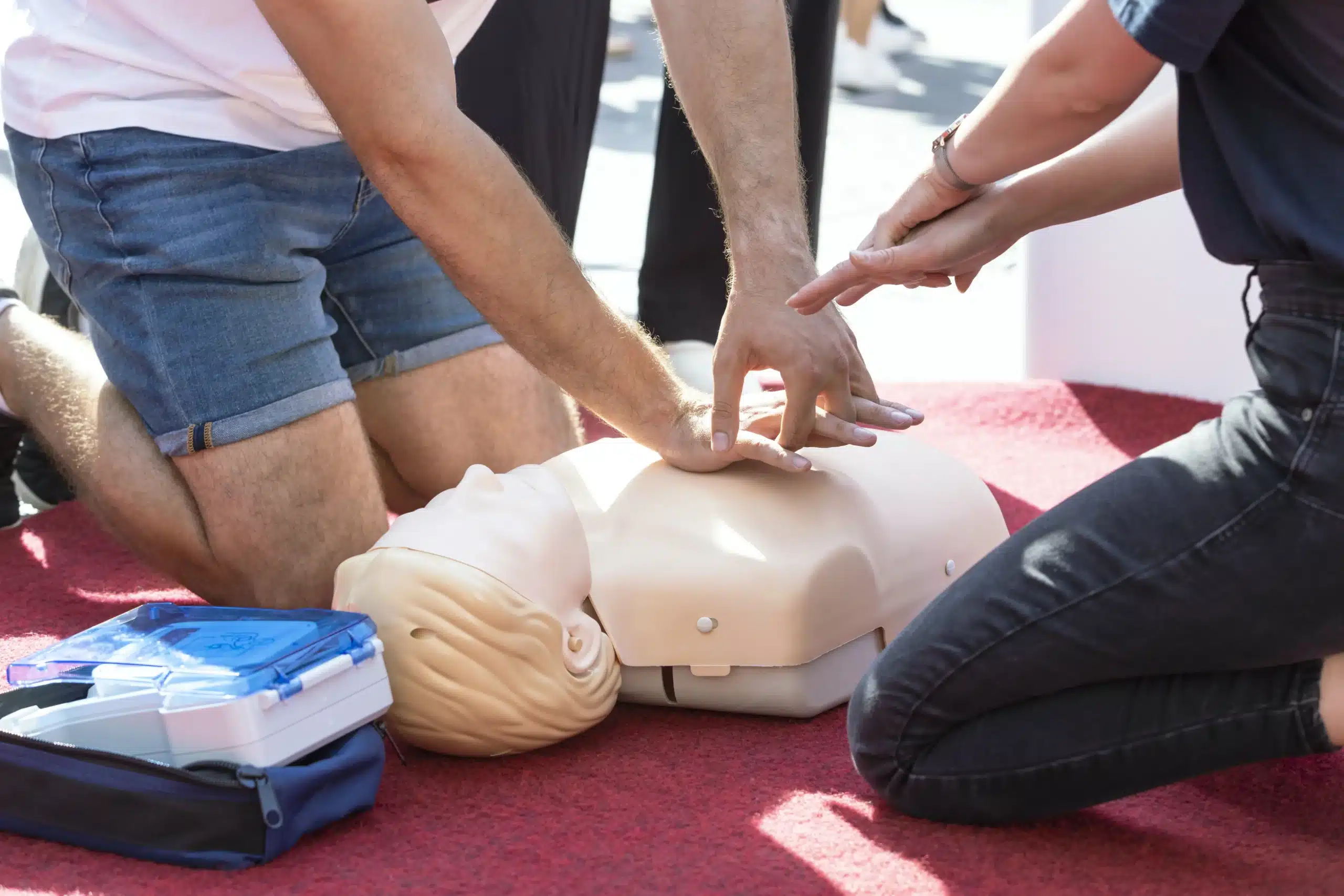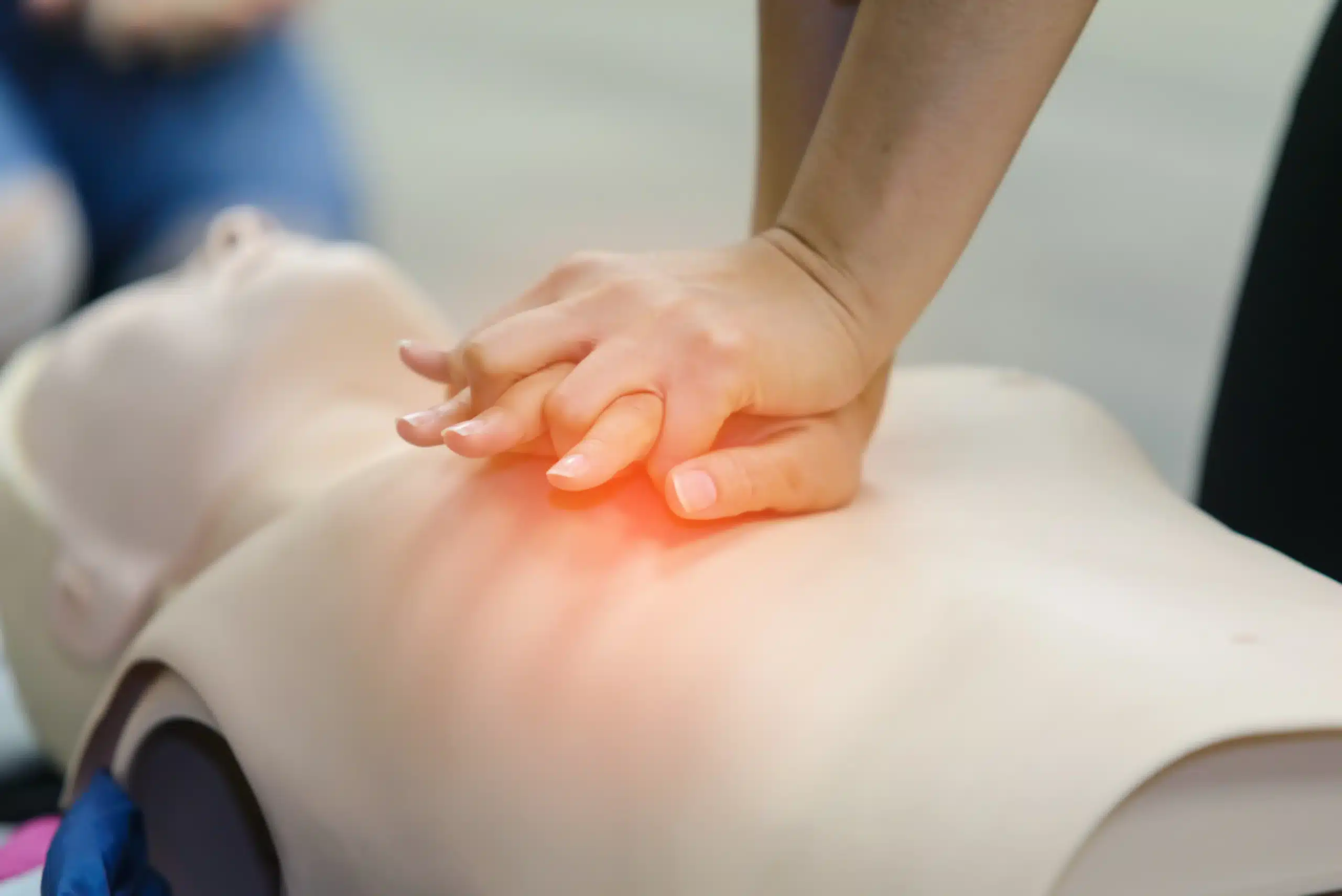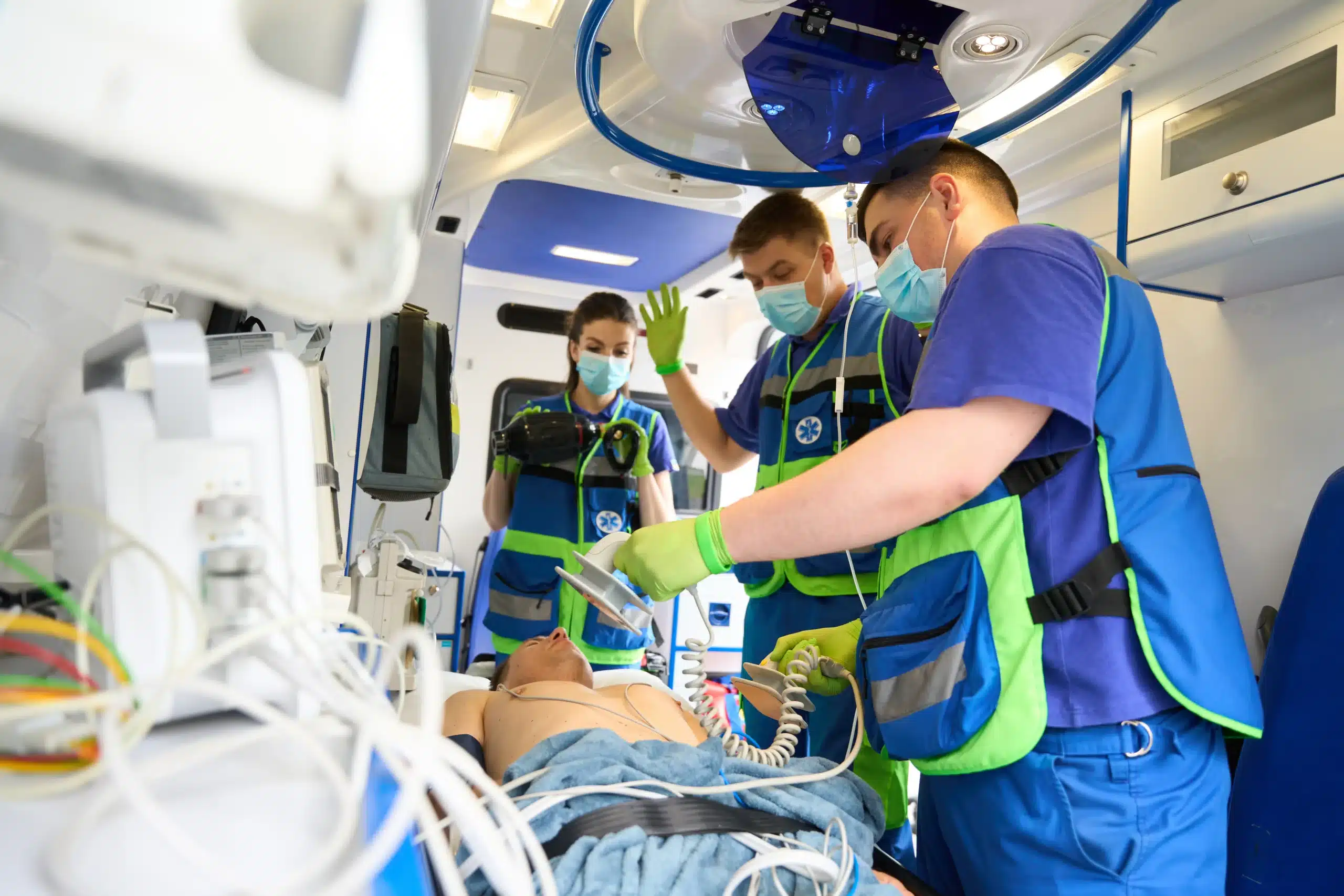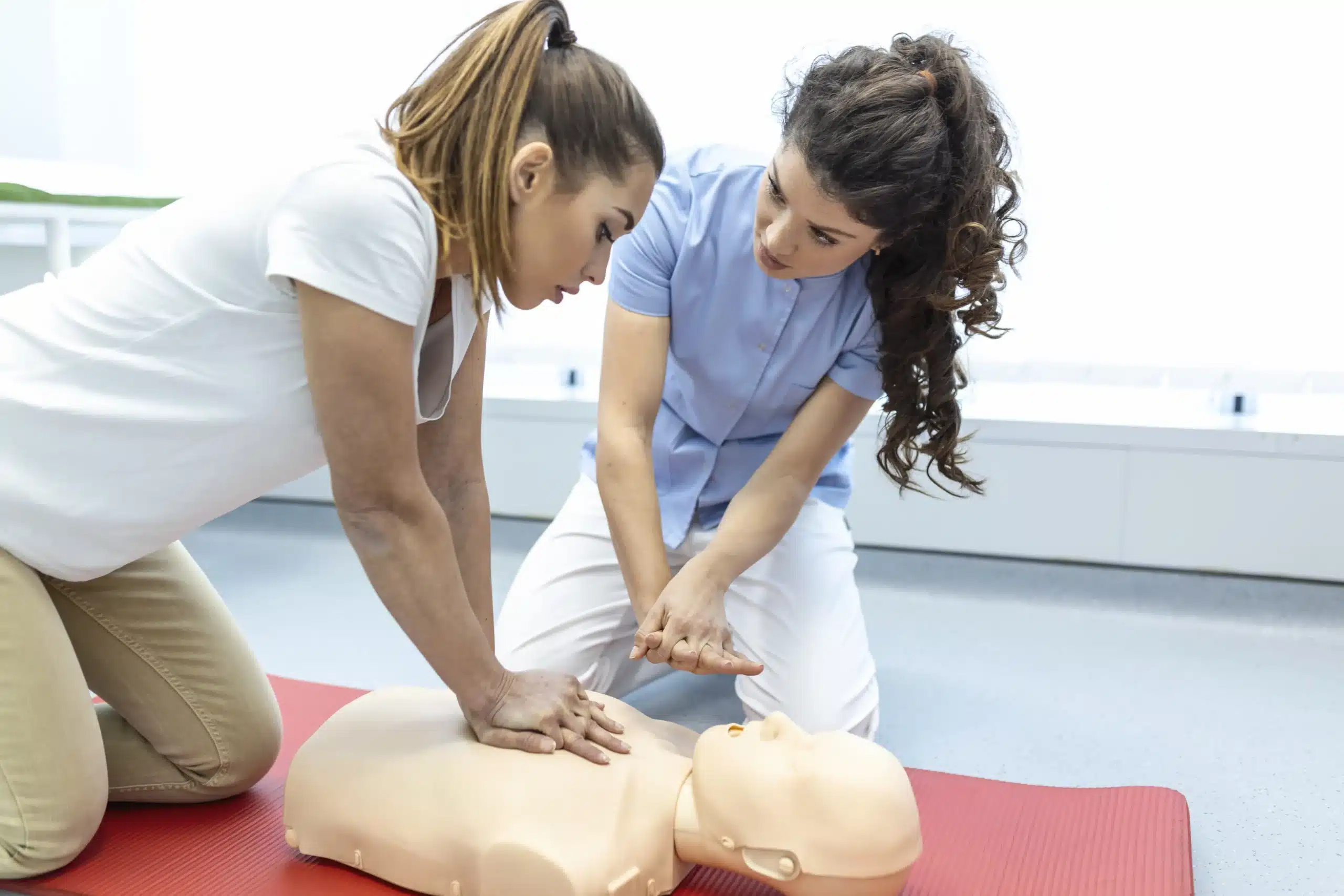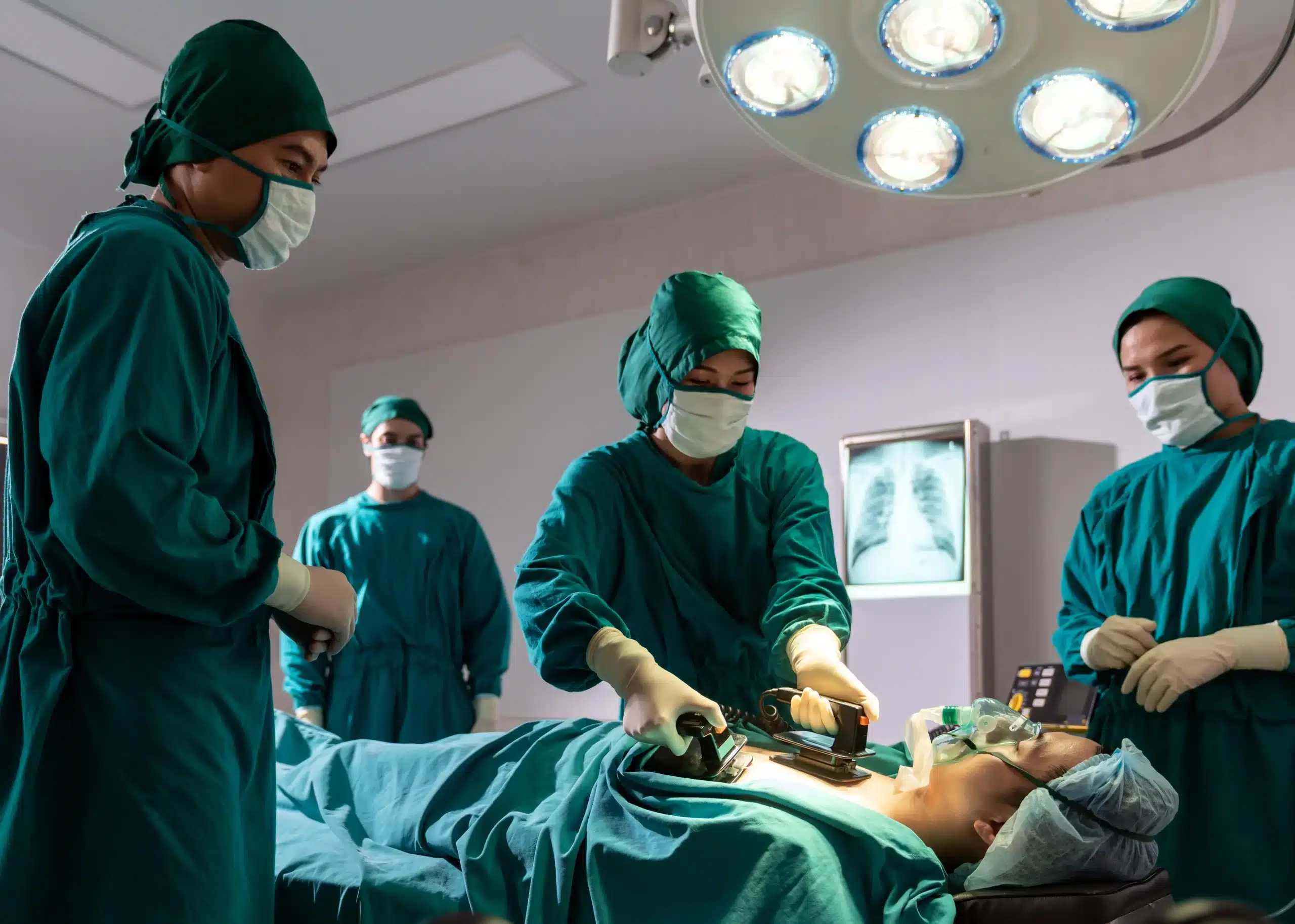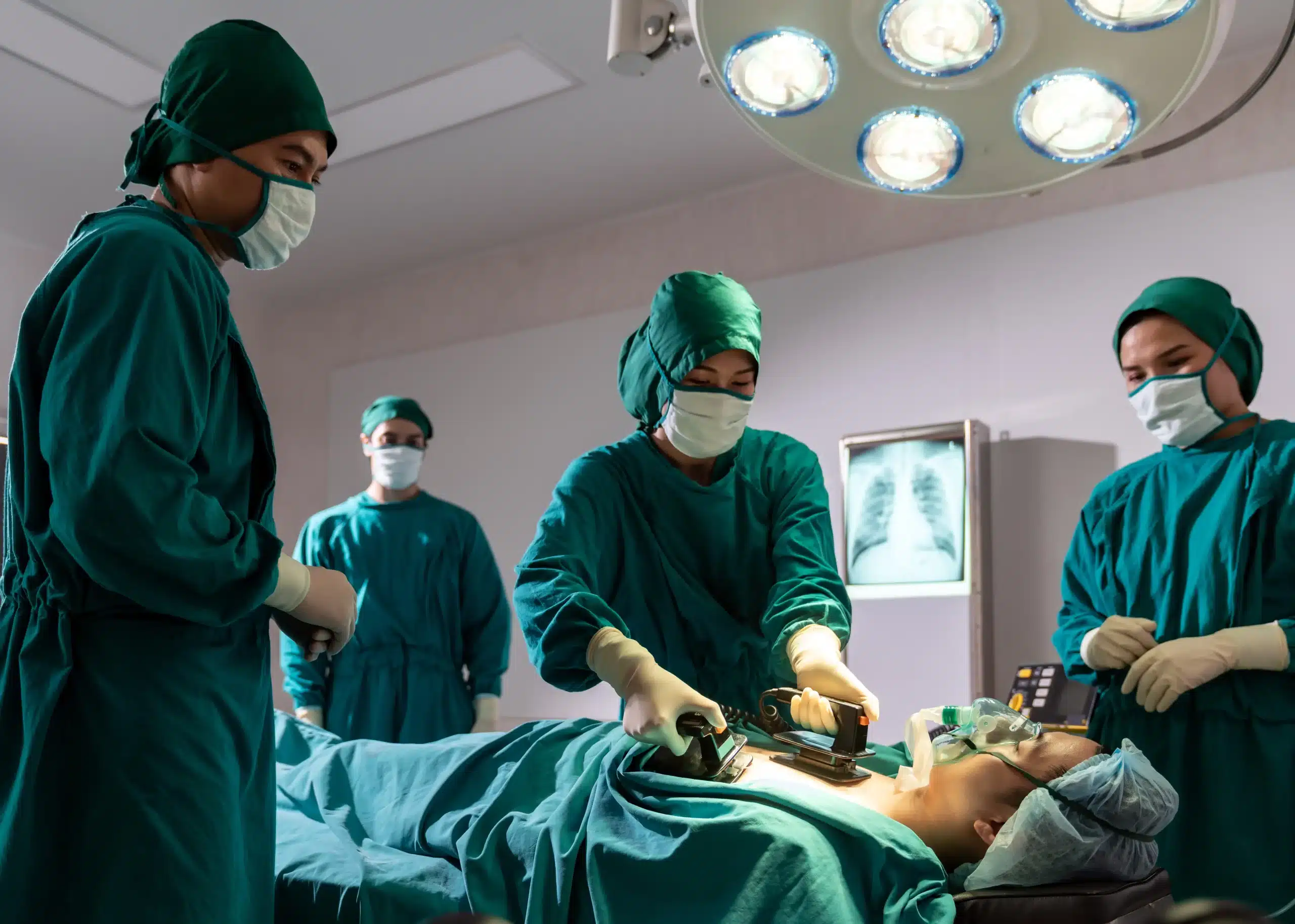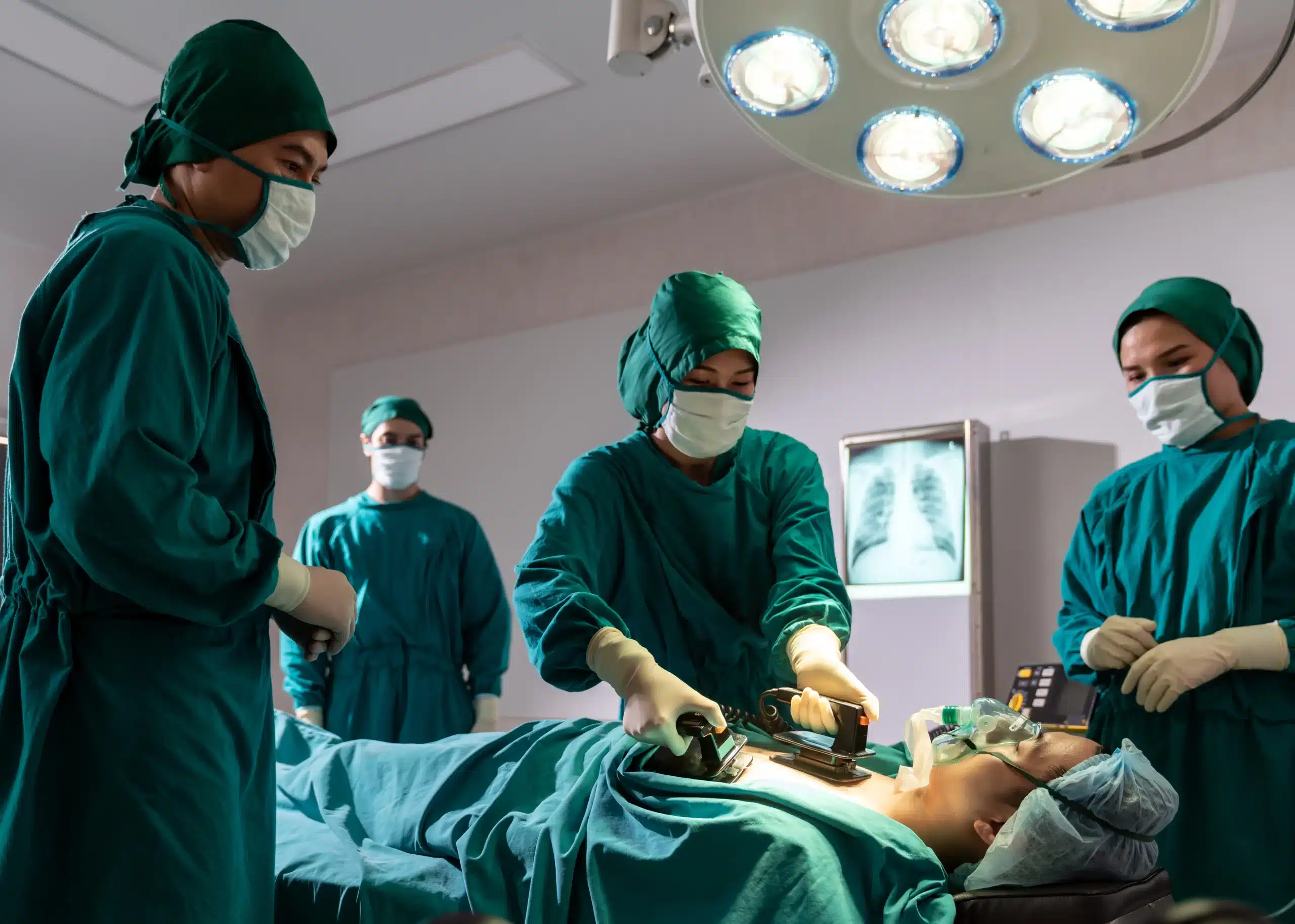Working in healthcare demands continuous learning and skill development, especially when it comes to managing life-threatening situations. ACLS certification is a crucial credential for healthcare professionals, demonstrating your proficiency in handling cardiovascular emergencies. This guide will walk you through the essentials of ACLS courses in San Rafael, covering everything from course curriculum and prerequisites to finding reputable providers and understanding the certification process. Whether you’re a seasoned healthcare provider or just starting your career, this guide will provide valuable insights into choosing the right ACLS course to enhance your skills and confidence.
Key Takeaways
- ACLS is more than just CPR: It provides advanced skills for managing complex cardiovascular emergencies, so look for hands-on training and real-world application in your course.
- Find the right course format for you: Consider your learning style and schedule when choosing between in-person, online, or hybrid ACLS courses. Look for experienced instructors and convenient locations.
- San Rafael offers convenient and affordable ACLS training: Take advantage of same-day certification, flexible schedules, and low price guarantees. Prioritize providers who offer comprehensive support beyond initial certification.
What is ACLS Certification?
ACLS, or Advanced Cardiovascular Life Support, certification is crucial for healthcare providers managing cardiovascular emergencies. It goes beyond basic CPR, equipping you with the skills to handle life-threatening situations like cardiac arrest, stroke, and other cardiovascular crises. The ACLS course emphasizes hands-on learning through interactive scenarios and simulations. This builds both technical skills and the confidence to act quickly in emergencies. ACLS training also emphasizes teamwork and clear communication, preparing professionals to work together seamlessly during critical situations to provide the best possible patient care. Earning your ACLS certification is a significant step, enhancing your skills and preparing you for high-pressure situations, ultimately improving patient outcomes.
Top ACLS Course Providers in San Rafael
Finding the right ACLS course is crucial for a positive and effective learning experience. Here are a few reputable options in San Rafael:
San Rafael CPR Classes
San Rafael CPR Classes is a woman-owned American Heart Association Training Center offering high-quality BLS, ACLS, PALS, CPR, and First-aid courses in San Rafael, CA. With classes offered daily, they make scheduling easy. Their focus on excellent customer service and a low price guarantee makes them a popular choice. They also offer an RQI program for medical professionals seeking a streamlined path to recertification. Serving San Rafael, Corte Madera, and Fairfax, they are a local resource for comprehensive safety training.
Safety Training Seminars
Safety Training Seminars focuses on American Heart Association BLS, ACLS, PALS, First-aid, and CPR training in San Rafael. They are dedicated to quality instruction and certification. For more information on their San Rafael courses, visit their website.
All Care CPR
All Care CPR emphasizes preparation for their ACLS courses. Students need a current American Heart Association (AHA) Basic Life Support (BLS) for Healthcare Providers certification card, the AHA ACLS Provider Manual, and must complete an online ACLS pretest. This ensures participants arrive prepared and ready to learn. Check their website for details on requirements.
ACLS Course Curriculum
The ACLS course curriculum is comprehensive, covering a range of essential skills and knowledge for healthcare professionals. It goes beyond basic life support, equipping you with the advanced techniques needed to manage complex cardiovascular emergencies. Let’s break down the key components:
Advanced Life Support Techniques
ACLS courses prioritize hands-on learning to build proficiency in crucial life-saving techniques. You’ll gain experience in airway management, including intubation and ventilation, as well as recognizing and managing cardiac rhythms. The curriculum emphasizes practical application through interactive scenarios, allowing you to apply these skills in simulated emergency situations. This practical training builds confidence and competence in managing real-world emergencies.
Pharmacology in Emergency Situations
A deep understanding of pharmacology is fundamental to ACLS. The curriculum covers the medications commonly used in cardiovascular emergencies, including their indications, contraindications, and appropriate dosages. You’ll learn how to administer these medications safely and effectively, making quick, informed decisions in critical situations. This knowledge, reinforced through case studies and practical exercises, is vital for positive patient outcomes. For more information on ACLS certification, check out this helpful guide.
Team Dynamics and Communication
Effective teamwork and clear communication are paramount in emergency settings. ACLS training emphasizes the importance of collaboration and communication within a healthcare team. You’ll learn strategies for coordinating care, sharing information concisely, and making joint decisions under pressure. This focus on teamwork prepares you to function effectively as part of a coordinated response team.
Hands-On Practice and Simulations
ACLS courses incorporate extensive hands-on practice and simulations to solidify your learning. These sessions replicate real-life clinical emergencies, giving you the opportunity to practice skills like CPR, defibrillation, and advanced airway management in a safe and controlled environment. This practical experience bridges the gap between theory and practice, ensuring you’re prepared to respond confidently in actual emergencies. Learn more about the ACLS training process.
ACLS Certification Prerequisites
Before you sign up for an ACLS course, it’s helpful to understand the prerequisites. Being prepared will make for a smoother learning experience so you can focus on mastering these lifesaving skills.
Current BLS Certification
You’ll need a current American Heart Association (AHA) Basic Life Support (BLS) for Healthcare Providers certification card to enroll in an ACLS course. No exceptions—it can’t be expired! If your BLS certification is about to expire or has lapsed, take a BLS course before your ACLS class.
Required Materials and Pre-Course Study
Most ACLS courses require the current AHA ACLS Provider Manual. Check with your chosen provider; some may let you borrow a manual, while others require a purchase. You’ll also likely have a pre-course assignment, such as an online pretest. Completing this pretest and reviewing the “Core Cases” section of your manual beforehand will give you a head start on the material.
Physical Demands and Health Considerations
ACLS training involves hands-on practice and simulations, which can be physically demanding. If you have any pre-existing health conditions, consider your physical limitations and discuss any concerns with your course provider. Many providers offer rescheduling options if needed.
ACLS Course Formats and Duration
Finding the right ACLS course format is key to successfully completing your training. Whether you thrive in a traditional classroom or prefer the flexibility of online learning, there’s an option that fits your needs. Let’s explore the different ACLS course formats available in San Rafael.
In-Person Classes
In-person ACLS classes offer a structured learning environment with direct interaction with instructors and peers. These classes provide hands-on training and real-time feedback, which can be especially beneficial for mastering essential skills. In-person ACLS training is available seven days a week, from 7 am to 6 pm, giving you plenty of options to find a time that works with your schedule. This format is ideal for those who prefer a traditional classroom setting and value face-to-face instruction.
Online Learning
If your schedule is packed or you prefer learning at your own pace, online ACLS courses offer a flexible alternative. Many ACLS courses incorporate an online component, often using the Resuscitation Quality Improvement (RQI) program. This online portion typically takes 3-4 hours for ACLS and can be completed on your computer or tablet. Keep in mind that phones aren’t compatible with the online platform. This blended approach allows you to cover the theoretical material online before attending an in-person skills session.
Hybrid Options
Hybrid ACLS courses combine the best of both worlds, offering the convenience of online learning with the essential hands-on practice of in-person skills testing. With a hybrid course, you can complete the theoretical coursework online at your own pace, then schedule a shorter in-person session to demonstrate your skills and receive your ACLS certification. This format offers a balance of flexibility and practical experience.
Course Length and Scheduling
The total time commitment for ACLS certification varies depending on the format you choose. A typical ACLS course includes the online portion (3-4 hours), followed by a relatively short in-person skills test (approximately 40 minutes). Skills testing is available at over 60 locations, making it easy to find a convenient spot for your hands-on assessment. Once you’ve completed both the online component and the skills test, you’ll receive your certification card.
ACLS Certification Cost in San Rafael
When budgeting for your Advanced Cardiovascular Life Support (ACLS) certification in San Rafael, California, expect a range of prices depending on the provider and course format. Understanding the typical fees and what they cover will help you make an informed decision.
Course Fees and Additional Costs
ACLS certification courses in San Rafael generally cost between $250 and $350. San Rafael CPR Classes offers an ACLS course for $290, which includes the study materials, instruction, skills testing, and certification card. This all-inclusive pricing simplifies the process and ensures there are no hidden surprises. Keep in mind that some providers might have additional fees for course materials or other add-ons, so it’s always a good idea to confirm exactly what’s included in the quoted price.
Discounts and Price Matching
Many ACLS course providers in San Rafael offer discounts for groups, students, or returning customers. Inquire about potential discounts to see if you’re eligible. Some providers also have a low price guarantee, meaning they’ll match a competitor’s price. San Rafael CPR classes has a low price guarantee, so you know you’re getting a good deal. Doing a little comparison shopping can often help you find the most affordable option for your ACLS certification.
Quality of Instruction and Learning
When it comes to life-saving skills, you want the best possible training. Choosing a high-quality ACLS course with experienced instructors, hands-on training, and positive student feedback is crucial. Here’s what to consider:
Instructor Qualifications
Experienced, certified instructors bring a wealth of practical knowledge to the classroom. Look for ACLS courses taught by American Heart Association certified instructors with real-world experience. Their insights and ability to answer your questions will significantly impact your learning. A strong instructor can build your confidence and prepare you for actual emergencies.
Hands-On Practice with Mannequins
ACLS training is more than just textbooks and lectures. The best courses offer extensive hands-on practice with realistic mannequins. This practical training lets you develop muscle memory and apply your skills in a simulated environment. Prioritize courses that emphasize hands-on learning and provide ample opportunities to practice essential techniques.
Student Testimonials and Success Rates
A program’s track record matters. Check for student testimonials and success rates when selecting an ACLS course. Positive feedback from past participants shows the program’s effectiveness and the quality of instruction. High success rates on certification exams indicate that the course prepares students to apply their skills confidently.
Unique Features of San Rafael ACLS Courses
San Rafael offers some distinct advantages when it comes to ACLS certification. These features can make getting certified easier and more convenient, regardless of your schedule or budget.
Same-Day Certification
Time is often of the essence for medical professionals. In San Rafael, you can obtain your American Heart Association ACLS card the same day you complete the course. This eliminates the waiting period and allows you to quickly meet job requirements or advance your career.
Convenient Scheduling
Balancing work, life, and continuing education can be challenging. San Rafael ACLS courses understand this and offer classes seven days a week, from 7 am to 6 pm. This flexible scheduling makes it easier to fit the training into your busy life.
Lowest Price Guarantee
Cost is always a consideration. San Rafael CPR Classes offers a low price guarantee for their ACLS certification, ensuring you get the best value. The comprehensive course, including the online portion and in-person skills testing, is offered at a competitive price, and they even offer price matching. This commitment to affordability makes high-quality ACLS training accessible to everyone.
Post-Certification Support
Earning your ACLS certification is a significant accomplishment, but your journey doesn’t end there. Continued learning and skill maintenance are essential for providing effective patient care. Here’s what you should know about staying current with your ACLS certification in San Rafael:
Certification Renewal
Your ACLS certification is valid for two years. To maintain your credentials, you’ll need to complete a recertification course before it expires. Providers like Safety Training Seminars offer renewal courses in the San Rafael area. Planning ahead and scheduling your recertification in advance will prevent a lapse in your certification.
Continuing Education
Staying current with advancements in advanced cardiac life support is crucial, as the medical field is constantly evolving. Seek out continuing education opportunities such as workshops, seminars, and online resources to broaden your knowledge base and refine your skills. The American Heart Association provides various resources and courses to support your ongoing professional development.
Networking Opportunities
Connecting with fellow healthcare professionals in San Rafael offers invaluable support and learning opportunities. ACLS courses often provide a chance to network with colleagues and share experiences. Joining professional organizations or attending local conferences can further expand your professional network. Consider team-based ACLS training, which fosters a collaborative learning environment where you can discuss challenging scenarios and best practices with peers.
Choosing the Right ACLS Course
Finding the perfect ACLS course means considering your learning style, schedule, and the specific features offered by different providers. Let’s explore how to find the best fit for you.
Assess Your Learning Style
ACLS courses emphasize hands-on learning, using interactive scenarios and team-based activities to prepare you for real-world emergencies. If you thrive in a collaborative environment where you can actively participate, an in-person ACLS course might be a good fit. These classes offer opportunities to practice skills like CPR, defibrillation, and airway management in a supportive group setting. If you prefer self-paced learning, explore providers that offer online or blended learning options.
Consider Your Schedule
Balancing your commitments with ACLS training is essential. Look for courses that offer flexible scheduling. San Rafael CPR Classes offers classes seven days a week to accommodate various schedules. Daily courses are also available through other providers like Bay Area CPR, giving you more choices to find a time that works for you.
Evaluate Course Features and Support
Think about the additional features that can enhance your learning and post-certification support. For medical professionals seeking a streamlined approach, the RQI program at San Rafael CPR Classes provides a fast and efficient path to BLS, ACLS, and PALS certifications. Also, ask about post-certification support, like renewal assistance and continuing education. And, don’t forget to compare pricing and look for a low price guarantee.
Related Articles
- ACLS Renewal in Fairfax: Your Complete Guide – San Rafael CPR Classes
- Online ACLS Classes in Fairfax: Your Complete Guide – San Rafael CPR Classes
- AHA ACLS Classes in San Rafael, CA – San Rafael CPR Classes
- CPR, BLS, ACLS, PALS, & First-aid Classes in San Rafael, CA
- BLS Classes in San Rafael: Your Guide – San Rafael CPR Classes
Frequently Asked Questions
What’s the difference between BLS and ACLS?
BLS, or Basic Life Support, focuses on immediate life-saving techniques for anyone experiencing cardiac arrest, respiratory distress, or an obstructed airway. ACLS builds upon BLS, providing healthcare professionals with the advanced knowledge and skills to manage more complex cardiovascular emergencies. Think of BLS as the foundation, while ACLS adds specialized training for healthcare providers.
How long does it take to get ACLS certified?
The time commitment depends on the course format. The online portion typically takes 3-4 hours. The in-person skills test is much shorter, usually around 40 minutes. You can complete both on the same day and receive your certification card immediately after.
How much does ACLS certification cost in San Rafael?
ACLS courses in San Rafael typically range from $250 to $350. Always confirm what’s included in the price, such as study materials and the certification card. Look for providers offering a low price guarantee or discounts.
How often do I need to renew my ACLS certification?
ACLS certification is valid for two years. You’ll need to take a recertification course before it expires to maintain your credentials. Plan and schedule your recertification in advance to avoid any lapse in your certification.
What if I have a busy schedule? Are there flexible options for ACLS training?
Absolutely! Many providers in San Rafael offer flexible scheduling, including weekend and evening classes. Online and hybrid options allow you to complete the coursework at your own pace, then schedule a shorter in-person skills session.
